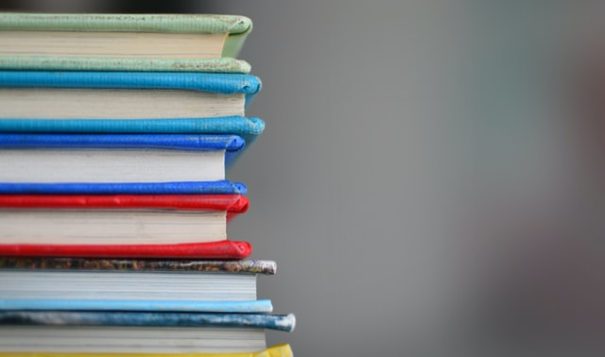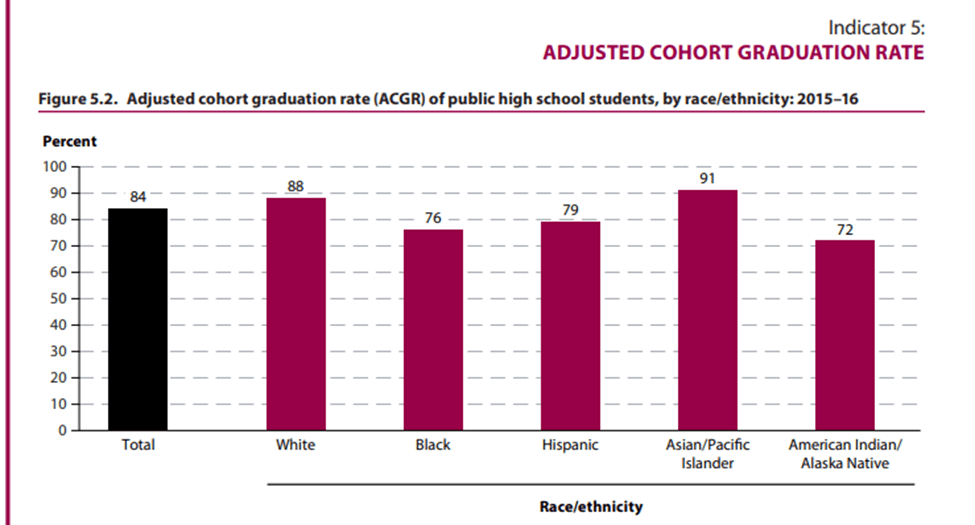News Based on facts, either observed and verified directly by the reporter, or reported and verified from knowledgeable sources.
New charter school aims for success of Native students
 The NDN Collective announces plan to establish an Indigenous-led school to help raise the graduation rates of Native students in Rapid City, S.D.
The NDN Collective announces plan to establish an Indigenous-led school to help raise the graduation rates of Native students in Rapid City, S.D.
Indigenous student high school graduation rates lowest of all racial groups in U.S.
The national non-profit NDN Collective plans to open an independent, Indigenous-led school in Rapid City, S.D. for Native students. School administrators project opening it with 40 students in fall 2022. The goal is to engage Native students to assume leadership roles. The school curriculum also aims to strengthen culture, identity, and community investment.
The 8,534 Native students who attend schools in Rapid City lag behind peers locally and nationally. Rapid City with a population of 75,258 ranks as South Dakota’s second largest town.
While South Dakota Native students may falter in school, American Indian and Alaska Native students excel in nine other states. Native students have a 90-percent high-school graduation rate in Delaware.
Also, Indigenous ninth graders graduate at a higher percentage in Arkansas, Connecticut, Maine, Massachusetts, Mississippi, Missouri, Tennessee, and Texas. Meanwhile, the graduation rate of South Dakota’s Native ninth grade students ranks at 51 percent. This is the lowest in the country for their cohort.
The National Center for Education Statistics, the primary federal entity for collecting and analyzing related data, reports ethnic data results for students. American Indian and Alaska Native students attain standard four-year high school diplomas nationwide at a 72-percent rate. This is the lowest rate of all racial and ethnic groups of students.
“Indigenous students in South Dakota are among the lowest in terms of graduation, achievement, and mobility rates, and are disproportionately and more harshly disciplined in schools than their non-Indigenous peers across the country.”
-NDN Collective in announcing the initiative
The NDN Collective announcement to build an Indigenous-led school — a private, non-profit academy to be located in Rapid City — lands as a direct response to the South Dakota Legislature’s failure to provide funding for Native charter schools.
Legislative funding would have addressed the shortfall for charter schools, according to Mary Bowman, who lobbied to increase funding for such schools during the most recent legislative session. “The legislature denied it because they couldn’t agree on a way to split the funding for public and charter schools,” she said.
The South Dakota Education Equity Coalition and the National Alliance for Public Charter Schools backed the unsuccessful effort to pass an “act to provide for the creation and funding of Oceti Sakowin Community-Based Schools.”
The bill would have supported ways to instill youth with the essential understanding of the Seven Council Fires of the Great Sioux Nation, according to advocates.
The NDN Collective school proposal is the most recent in a series of efforts to replicate schools based upon the Native American Community Academy, or NACA. The school is based in Albuquerque, New Mexico. The school had a 100-percent college acceptance rate with its first graduating class in 2012.
NDN Collective has partnered with the NACA Inspired Schools Network, NISN, which has cultivated fellows like Bowman to shepherd development of the schools. The Rapid City Indigenous Institute is on course to join other NACA-inspired schools being established on the Rosebud and Standing Rock Sioux Indian reservations.
Given the lack of state involvement, these schools will rely on community and tribal support for the funding, said Bowman.
Serving as school design lead for NDN Collective, she said, “This is good to replicate in other Indigenous communities. Native American students want to see themselves in what they are learning,” she told Buffalo’s Fire. Teaching of all subjects will be rooted in Native culture while meeting both state and federal requirements for curriculum, she said.

Bowman expects NDN’s school to complete the standardized testing every year and to undergo the South Dakota evaluation for Adequate Yearly Progress, as required for accountability to the federal No Child Left Behind Act.
NDN Collective identifies itself as “an Indigenous-led organization dedicated to building Indigenous power. Through organizing, activism, philanthropy, grant making, capacity-building and narrative change, we are creating sustainable solutions on Indigenous terms,” according to the organization’s website.
The plan is to open with two classrooms for simultaneously teaching 20 kindergarten students in each class. In consecutive years of operations, the plan is to increase the number of classes until the school reaches the desired grade-level range.
If students can take advantage of this elective option, they will achieve “higher confidence, higher academic rates, and better leadership skills,” Bowman said.
Rylee Mitchell is a Little Shell Chippewa. Contact her at ryleemitchell51@gmail.com


Dugan
RYLEE MITCHELL “Congratulations”